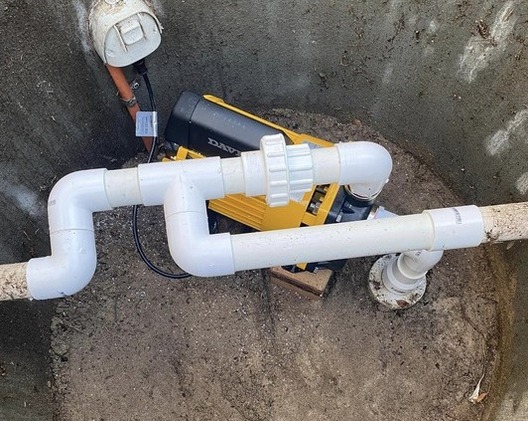Bore Pumps: The Heart of Efficient Groundwater Extraction
For Swell Irrigation and its clientele, understanding the significance and functionality of bore pumps is essential. A bore pump is a device used to extract water from underground sources, playing a pivotal role in groundwater pumping. In this blog, we’ll delve into the intricacies of bore pumps, highlighting their importance and discussing various aspects including submersible pumps, groundwater pumping, pumping systems for wells, residential bore pumps, and bore pump maintenance.
Understanding Bore Pumps
A bore pump is an electromechanical device installed in a borehole or well to lift water to the surface. It’s an essential component of many irrigation, domestic, and industrial water supply systems. These pumps vary in size, design, and capacity, making them suitable for different applications, from small-scale residential needs to large-scale agricultural projects.
The Types of Bore Pumps
Submersible Pumps
Submersible pumps are designed to be placed underwater, typically at the bottom of a borehole. They are highly efficient for deep wells and are known for their reliability and ability to lift water from great depths. These pumps are integral to many groundwater pumping systems.

Reach Us for other Services
Residential Bore Pumps
Residential bore pumps are smaller and are used in homes for domestic water supply from underground sources. They are designed to meet the daily water requirements of a household, ensuring a consistent supply of water for various uses.
Pumping Systems for Wells
Pumping systems for wells involve not just the bore pump but also a series of components including pipes, filters, and control systems. The design of these systems depends on various factors such as the depth of the well, water yield, and the intended use of the water.
The Importance of Bore Pump Maintenance
Regular bore pump maintenance is crucial for ensuring the longevity and efficiency of the pump. Maintenance includes routine checks for wear and tear, cleaning of filters, and ensuring the electrical components are functioning properly. Neglecting maintenance can lead to reduced efficiency and even pump failure.
Applications of Bore Pumps
Bore pumps have a wide range of applications, reflecting their versatility and importance in various sectors.
Agricultural Use
In agriculture, bore pumps are used for irrigation, providing a steady and reliable water source for crops. They are particularly vital in regions where surface water is scarce or unreliable. The ability to access groundwater can significantly enhance agricultural productivity and sustainability.
Domestic Use
In residential settings, bore pumps are used to draw water for daily household needs. These residential bore pumps are typically smaller and less powerful than their agricultural counterparts but are equally important for ensuring a consistent water supply.
Industrial Use
Industries often rely on bore pumps for their operations, especially those requiring large amounts of water, such as mining, manufacturing, and construction. These pumps are designed to meet the high demands of industrial applications, ensuring uninterrupted water supply.
Choosing the Right Bore Pump
Selecting the appropriate bore pump depends on several factors, including the depth of the borehole, water yield, and the intended use of the water. It’s crucial to consult with experts, like those at Swell Irrigation, to determine the most suitable pump for specific needs.
Considerations for Selection
- Depth of the Borehole: Deeper wells may require more powerful submersible pumps.
- Water Yield: The amount of water needed daily will dictate the capacity of the pump.
- Purpose: The intended use (agricultural, domestic, industrial) influences the type of pump needed.
Advances in Bore Pump Technology
The field of bore pumps has seen significant technological advancements, enhancing their efficiency and functionality. Innovations in motor design, materials, and control systems have made pumps more durable, energy-efficient, and easier to maintain.
Bore Pump Installation and Safety
Proper installation of a bore pump is crucial for its performance and safety. It involves careful planning, accurate sizing, and adherence to safety standards. Professional installation services, like those offered by Swell Irrigation, ensure that the pump is installed correctly and safely.
Environmental Considerations
When using bore pumps for groundwater pumping, it’s essential to consider environmental impacts. Sustainable practices should be employed to prevent over-extraction of groundwater and to ensure that the aquifers are not depleted or contaminated.
Bore pumps are indispensable in modern water management systems, playing a crucial role in groundwater pumping. From large-scale agricultural irrigation to residential water supply, bore pumps are at the heart of efficient and reliable water extraction. Whether it’s submersible pumps for deep wells or smaller residential bore pumps, each plays a pivotal role in providing access to groundwater. With proper selection, installation, and maintenance, these pumps can provide long-term, sustainable solutions for water needs.
As we look to the future, the importance of bore pump technology in managing our water resources becomes even more pronounced. With challenges like climate change and increasing water scarcity, the role of efficient and sustainable bore pump maintenance and operation cannot be overstated. Companies like Swell Irrigation are key players in this realm, offering not just products, but also the expertise and guidance necessary to navigate these challenges. By continuing to focus on innovative pumping systems for wells and maintaining a commitment to sustainability and efficiency, we can ensure that our valuable water resources are managed wisely for generations to come.
Quality Services is what we do!
Interested in any of our services? Contact us to make an appointment and get started!
Copyright © 2024 Swell Irrigation. All Rights Reserved
